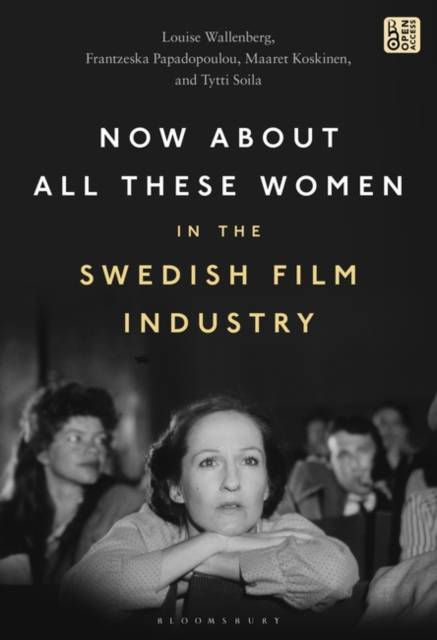
- Retrait gratuit dans votre magasin Club
- 7.000.000 titres dans notre catalogue
- Payer en toute sécurité
- Toujours un magasin près de chez vous
- Retrait gratuit dans votre magasin Club
- 7.000.0000 titres dans notre catalogue
- Payer en toute sécurité
- Toujours un magasin près de chez vous
Now About All These Women in the Swedish Film Industry
Louise Wallenberg, Frantzeska Papadopoulou, Maaret Koskinen
Livre relié | Anglais
203,95 €
+ 407 points
Description
In the aftermath of the MeToo movement, during an ongoing pandemic, and in the midst of repeated demands for a 50/50 split between men and women in above-the-line positions, this book analyzes and interrogates the politics of gender focusing on the Swedish film industry, often considered to be the most "gender equal" film industry worldwide. While this gender equality (with a considerable proportion of women behind the camera) is much due to policies carried out of the state funded Swedish Film Institute, women filmmakers in Sweden still struggle with the same problems as do women in other national film industries. These problems entail having smaller production and distribution budgets than men and working in an environment involving recurring scandals of gender discrimination and sexual harassment.
This open access book looks behind the statistics and explores the often complex cultural, legal, and political conditions under which women have entered a male-dominated industry and discusses women's strategies and efforts to promote change while providing evidence on how women's presence has challenged the industry by provoking critical reactions and introducing new ways to portray women on screen. Using a wide range of different sources (e.g. archival material, laws, contracts, films, biographical materials, and interviews), the book tells the history of the rise of gender equality efforts undertaken by the Swedish Film Institute and investigates women's possibilities to manage the rights to their work. It offers compelling portraits of pioneering women who have worked in or in relation to the industry and looks at the experiences of women currently working in the film industry.
The ebook editions of this book are available open access under a CC BY-NC-ND 4.0 licence on bloomsburycollections.com. Open access was funded byÖrebro universitet.
This open access book looks behind the statistics and explores the often complex cultural, legal, and political conditions under which women have entered a male-dominated industry and discusses women's strategies and efforts to promote change while providing evidence on how women's presence has challenged the industry by provoking critical reactions and introducing new ways to portray women on screen. Using a wide range of different sources (e.g. archival material, laws, contracts, films, biographical materials, and interviews), the book tells the history of the rise of gender equality efforts undertaken by the Swedish Film Institute and investigates women's possibilities to manage the rights to their work. It offers compelling portraits of pioneering women who have worked in or in relation to the industry and looks at the experiences of women currently working in the film industry.
The ebook editions of this book are available open access under a CC BY-NC-ND 4.0 licence on bloomsburycollections.com. Open access was funded byÖrebro universitet.
Spécifications
Parties prenantes
- Auteur(s) :
- Editeur:
Contenu
- Nombre de pages :
- 240
- Langue:
- Anglais
Caractéristiques
- EAN:
- 9781501366215
- Date de parution :
- 23-02-23
- Format:
- Livre relié
- Format numérique:
- Genaaid
- Dimensions :
- 152 mm x 229 mm
- Poids :
- 494 g

Les avis
Nous publions uniquement les avis qui respectent les conditions requises. Consultez nos conditions pour les avis.






